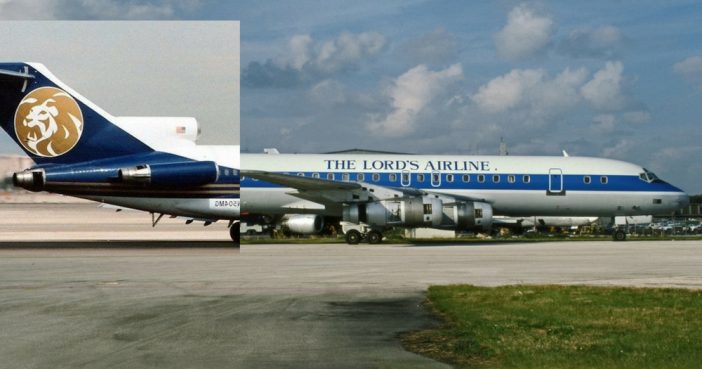
6. Highland Express
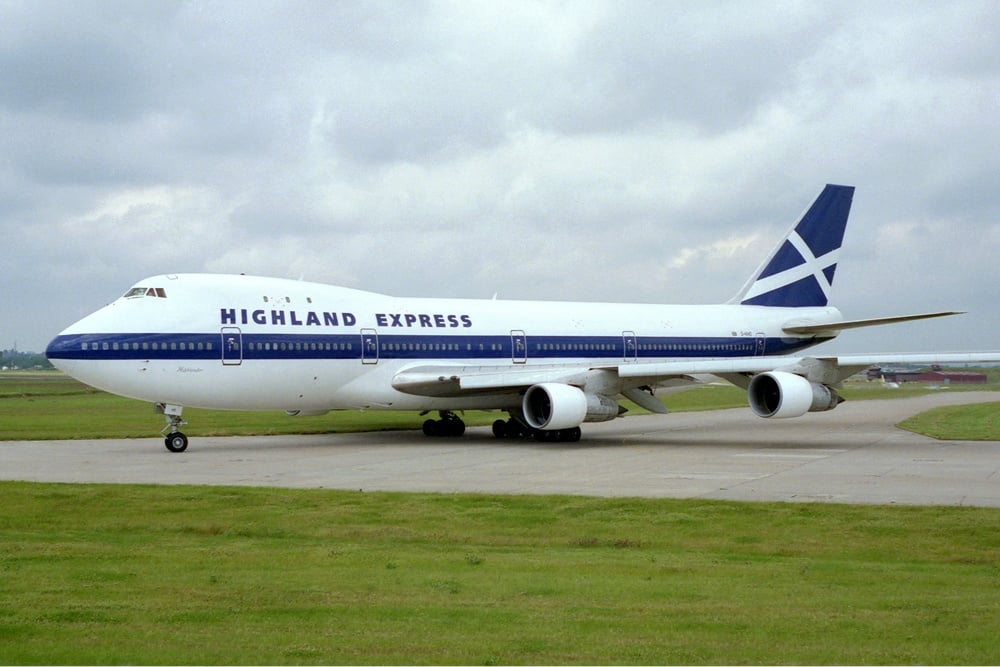
The brainchild of lawyer Randolph Fields, a founder of Virgin Atlantic, Highland Express was the first (and possibly only) budget transatlantic line to make Scotland its home base. It came about after Fields split with Richard Branson and cashed in his Virgin stake for a tidy profit, which he used to acquire a 747 and fly it from Prestwick, Scotland to Newark for a rock-bottom $25 one-way. Encouraged by the initial response, in 1987, he added a flight from London Gatwick, right on Virgin’s turf. But losses mounted, and Highland Express ground to a halt soon after that.
7. Presidential Airways
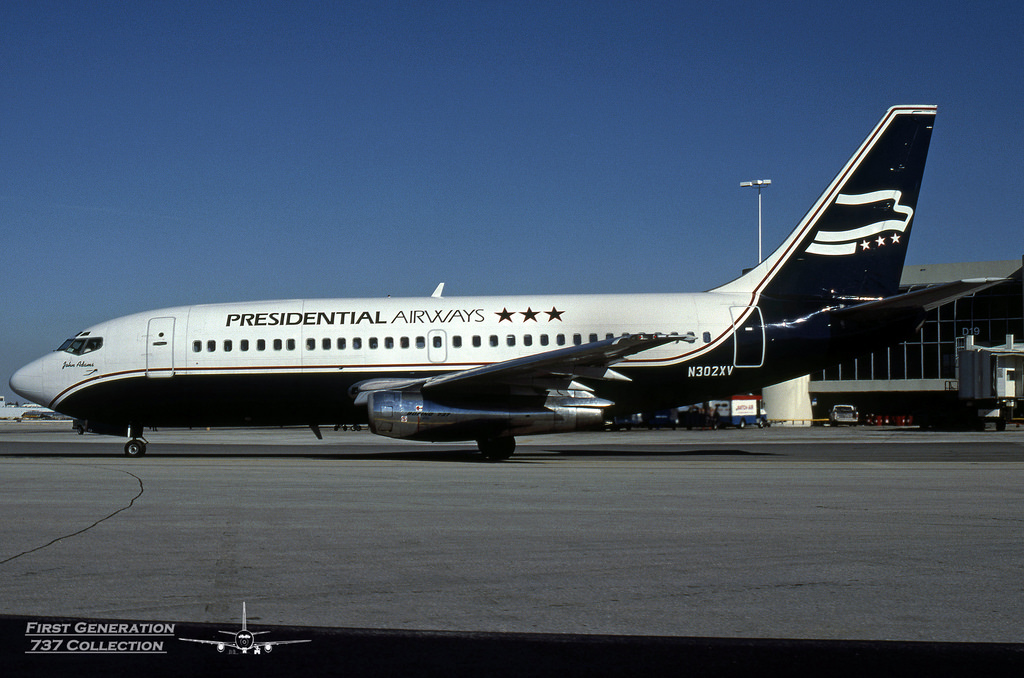
Founded by ex-People Express executives, Washington-based Presidential aimed to improve upon that dirt cheap model, with a full-service airline at discount fares. Moving into a new terminal at Dulles, the airline catered to the capital crowd with an airport VIP lounge dubbed the “Oval Office” and flights along the Eastern seaboard and other domestic points. Presidential candidate Michael Dukakis chartered one of the planes during his 1988 campaign, but both his political career and the airline were soon history, with the carrier filing for bankruptcy the following year.
8. Pride Air
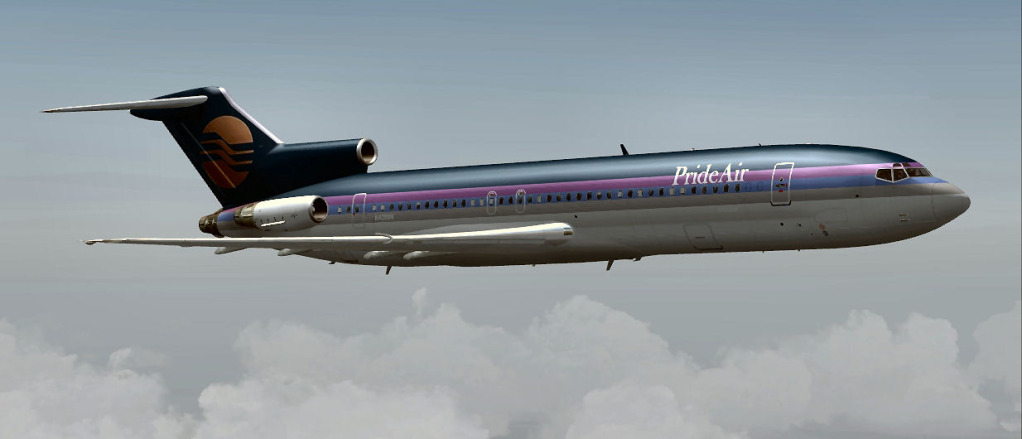
New Orleans-based Pride Air grew out of one of the most dramatic upheavals that followed deregulation, when, in the early 1980s, industry disruptor Frank Lorenzo, who ran a small Texas airline, launched a takeover of Continental Airlines, putting that proud legacy line into Chapter 11 bankruptcy and firing thousands of workers. A group of those unemployed workers decided to get even, forming an airline that would be a model of good service and good management, with flights all over the Sunbelt. But what they got was a lesson in how hard it is for a small, under-financed carrier to compete with the big guys. It shut down after only three months in business, at the end of 1985.
9. The Lord’s Airline
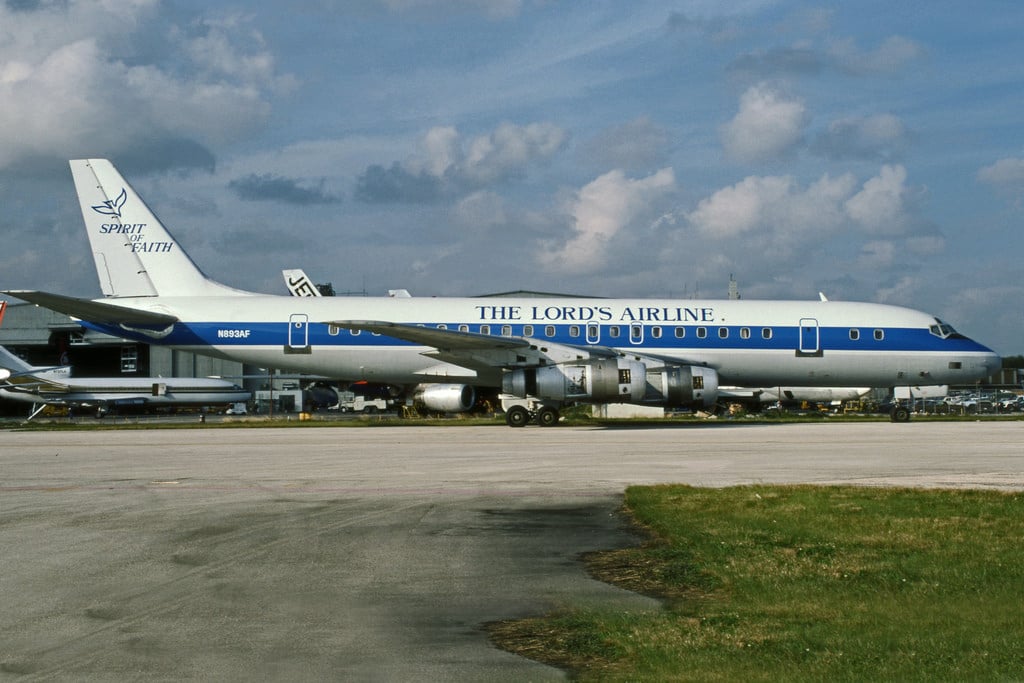
This one could have used a little help from above. The idea, according to its initial business proposal in 1985, was to create a “warm spiritual atmosphere” aimed at born-again believers, on proposed DC-8 flights from Miami to Tel Aviv. The backers even pledged to donate a significant share of their hoped-for profits to “the Lord’s ministries.” But their dream—and their plane with its “spirit of faith” tail fin—was grounded permanently when the money ran out.
10. The Great American Smoker’s Club
This was a spinoff of Royale West Airlines, a small mid-1980s startup that initially flew from West Coast points like Burbank to Las Vegas and Colorado. As the rest of the airline industry moved to curtail or ban smoking aboard scheduled flights, Royale entered into a plan to operate “all-smoking flights” for the Dallas-based “Great American Smoker’s Club”—which, in turn, was formed to fight for “cigarette smokers’ right to smoke” and to protest what it said was the airlines’ “second class treatment” of their members. The plan was snuffed out when in-flight smoking bans started taking effect in 1988.
